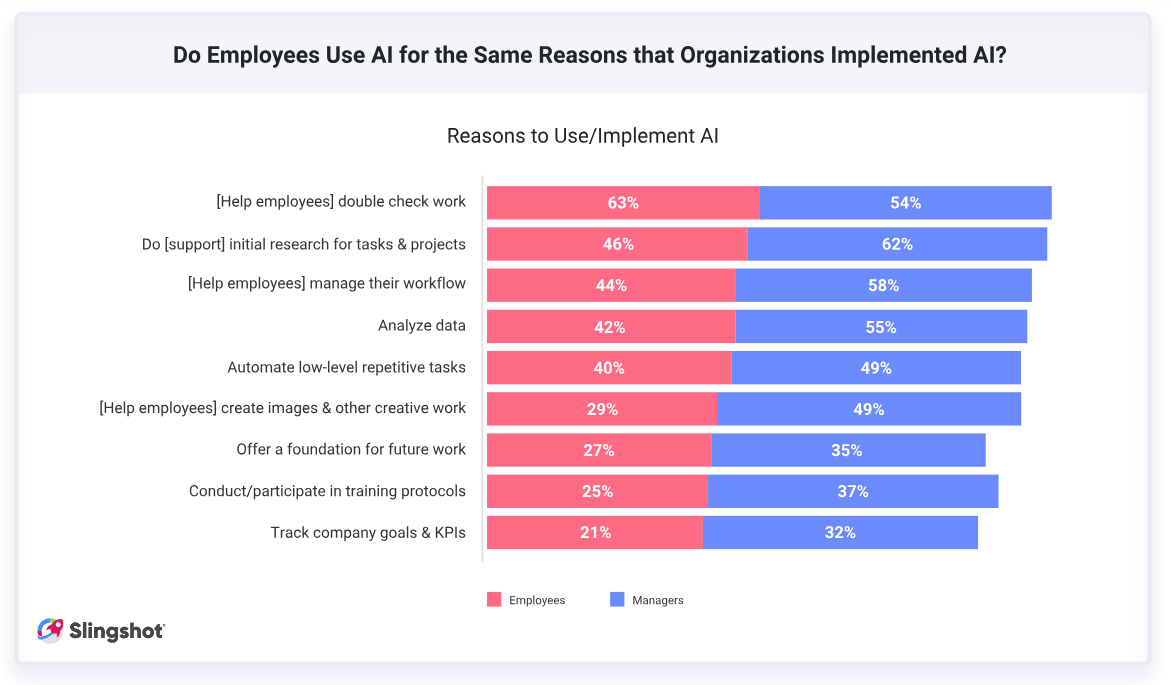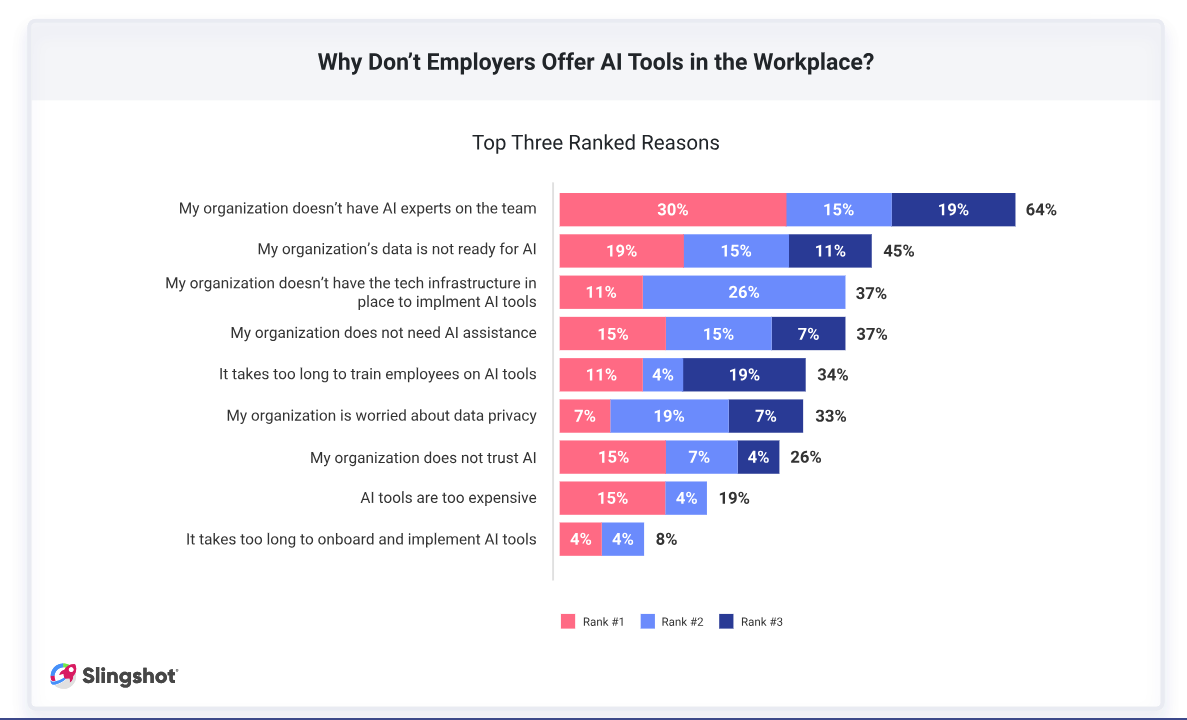
New report highlights disconnect between AI expectations and real-world use in workplace

A recent report by Slingshot, titled the 2024 Digital Work Trends Report, sheds light on the growing disparity between employer expectations and employee use of artificial intelligence (AI) in the workplace.
The report, which surveyed over 250 full-time employees and managers in the United States, found that employers are implementing AI to:
However, nearly two-thirds (63%) of employees are primarily using AI to double-check their work.
“This disconnect between the expectations managers have of AI and how employees are actually using AI is likely due to a lack of transparency and education around AI in the workplace,” says the Slingshot report.
On the issue of awareness, only 23% of employees feel fully educated and trained on AI tools such as ChatGPT. And while 72% of employees say their employees are at least adequately trained on AI, only 53% of employees believe they are.
This disparity is more pronounced by gender, with 66% of male employees feeling adequately trained compared to just 44% of female employees.
The report also examined the impact of AI on productivity, revealing another disconnect between employer perceptions and employee experiences. While 60% of employers believe AI is significantly boosting productivity, only 44% of employees report experiencing a noticeable increase.
Additionally, 10% of employees state that AI is not improving their productivity at all, found Slingshot.
On the other hand, a majority of employees (79%) say that AI is saving them one to two hours per day, and 37% say it saves them 3-4 hours. Less than a quarter (21%) of employees say they save less than an hour each day with AI.
More than 70% of HR teams are using or planning to use artificial intelligence in their functions, as they grapple with limited budget and the consequences of layoffs in the past year.
A major barrier to more effective AI integration, according to the report, is data readiness. Nearly half (45%) of employers have not yet implemented AI because their company’s data —or information that tracks performance, process, people and profitability – is not sufficiently prepared.
Nineteen (19%) of employers note data readiness as the top reason AI has not made it to their organization.

“For many companies, this lack of data readiness means their data is siloed across departments, platforms and channels, instead of one centralized location, and teams don’t have access to it. Without centralized data, AI cannot run,” said the Slingshot report.